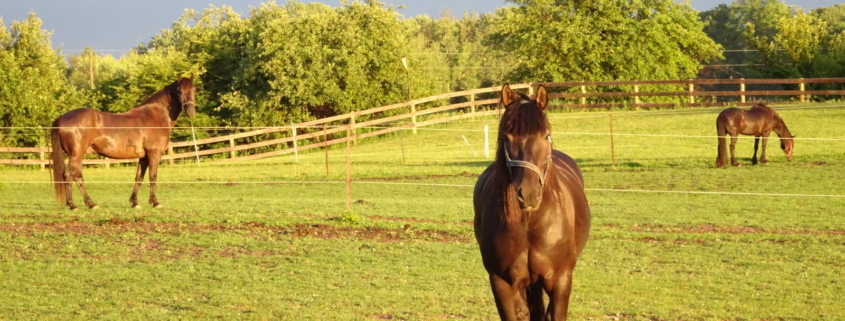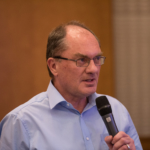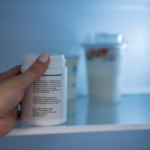The Horses: Daily Routines in the COVID-19 Era
By Gregor Reid BSc (Hons), PhD, MBA, ARM CCM, Dr HS, FCAHS, FRSC
It’s dawn and as per every day, I put on my mask. It’s not the type of mask you might think in these anxious times. It’s to prepare hay bags for our two horses. Hay, filled with the dust and mold particles that frankly my lungs despise.
After preparing the hay, I then begin my walk. Our faithful dog by my side in between racing after a ball that ejects from a plastic thrower in my right hand. All around, the sounds of birds starting their day in song, zooming in to find a spot on a feeder filled with sunflower seeds and nuts. The air is cool, but it opens my lungs.
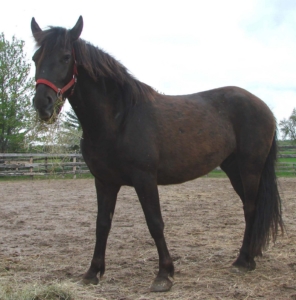
In half an hour, I will go back to our house and open up a computer screen that counts the dead and the ill from around the world. That sends me a litany of messages outlining new rules and procedures. The temptation to check savings has long passed. Not that they don’t matter. It’s just that we have to cope whatever they do.
As I walk past bare trees standing tall, itching to come alive, I think of frontline workers at hospitals being asked to check incoming sickness. Surely, managers, teachers or others could take over this public-facing role? We need to protect front-line health workers, or we won’t have them by our bedside. I know of one case where a super-highly qualified nurse was thrust into the cold air without protective gear and told to check incoming. The managers hadn’t fully understood what a virus is, how it infects and what is needed to stop it, and despite advance warning from other countries they had left the hospital and staff unprepared. The nurse had to demand personal protective equipment. Thankfully, awareness is growing. The messaging is now full-on.
Isn’t it easy to fathom what we’re all scared of? The cough, the sore throat, the fever then lungs that can’t seem to get enough air into our body? The fear of our calls not being answered, of not getting tested, and where we sit on the priority list when the ventilators are all taken? The fear of not seeing your mother again because planes won’t take you there and she’s too old to be saved.
It’s the first day of spring, so the leaves have not yet shuttered the sounds of motor vehicles on nearby roads, except today that constant hum is muted. It’s quiet outside. Humanity behind curtains. As it should be, even though we could never have imagined it.
I sit down for breakfast. Oatmeal, a probiotic milk drink that has data on fighting the flu, on top of frozen fruit melted in the microwave. A tablespoon of sunflower seeds and almonds the birds didn’t get. I pop my favourite probiotic along with a multi-vitamin perhaps only to sanctify my mind. Plus, a cup of tea, of course.
I re-read what my colleague in Britain, Glenn Gibson, has compiled. A brilliant piece on why probiotics may help us fight this coronavirus. I also wrote a commentary, well-intentioned but already met with cynicism via Twitter, that communication tool that never allows enough space to say what needs to be said, and is never enough for the addicted users.
Whatever we do to fight this miniscule blob looking only to live and multiply like the rest of us, we must do it with hope. For hope is our salvation. It is what we aspire to find. And if our time here has come to an end when we least expected it, we can still leave hope for others and tell them we tried our best to shine a light in the darkness. A light that will be their future. And if more time is given to us, then surely with every ounce of energy we will welcome the horses and the blessings of Mother Nature and pass our multitude of gifts to make the world a better place.
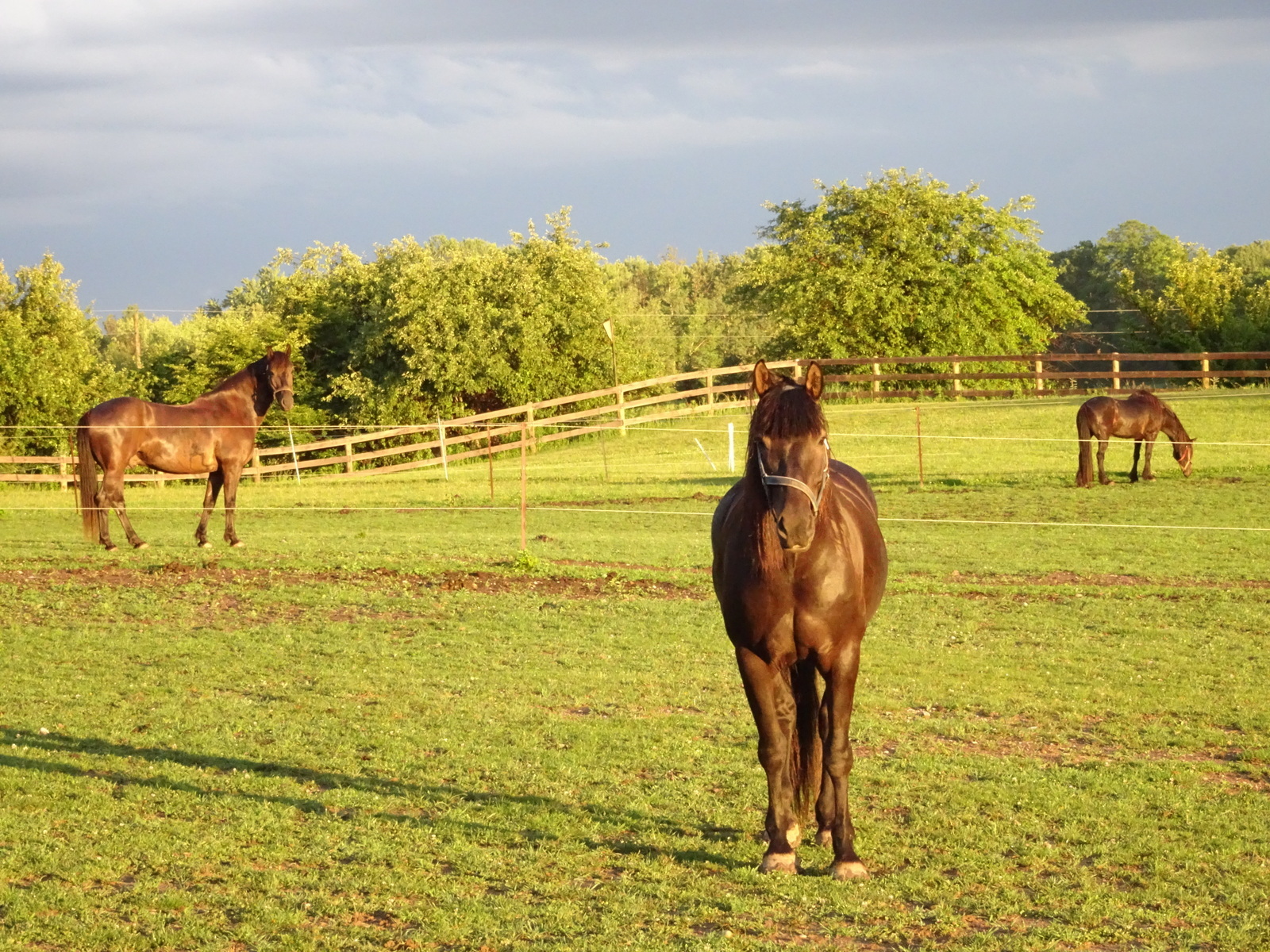
When I was at high school, our English teacher from the highlands had us read a poem written around the year I was born (1955) by a famous Scot, Edwin Muir. It’s called The Horses and I will leave it for you to read (substitute ‘fathers’ for ‘parents’). For Muir, these beautiful animals were creatures closest to his God. Animals to bring hope through the hours of sadness and fear.
Barely a twelvemonth after
The seven days war that put the world to sleep,
Late in the evening the strange horses came.
By then we had made our covenant with silence,
But in the first few days it was so still
We listened to our breathing and were afraid.
On the second day
The radios failed; we turned the knobs; no answer.
On the third day a warship passed us, heading north,
Dead bodies piled on the deck. On the sixth day
A plane plunged over us into the sea. Thereafter
Nothing. The radios dumb;
And still they stand in corners of our kitchens,
And stand, perhaps, turned on, in a million rooms
All over the world. But now if they should speak,
If on a sudden they should speak again,
If on the stroke of noon, a voice should speak,
We would not listen, we would not let it bring
That old bad world that swallowed its children quick
At one great gulp. We would not have it again.
Sometimes we think of the nations lying asleep,
Curled blindly in impenetrable sorrow,
And then the thought confounds us with its strangeness.
The tractors lie about our fields; at evening
They look like dank sea-monsters couched and waiting.
We leave them where they are and let them rust:
‘They’ll molder away and be like other loam.’
We make our oxen drag our rusty plows,
Long laid aside. We have gone back
Far past our fathers’ land.
And then, that evening
Late in the summer the strange horses came.
We heard a distant tapping on the road,
A deepening drumming; it stopped, went on again
And at the corner changed to hollow thunder.
We saw the heads
Like a wild wave charging and were afraid.
We had sold our horses in our fathers’ time
To buy new tractors. Now they were strange to us
As fabulous steeds set on an ancient shield.
Or illustrations in a book of knights.
We did not dare go near them. Yet they waited,
Stubborn and shy, as if they had been sent
By an old command to find our whereabouts
And that long-lost archaic companionship.
In the first moment we had never a thought
That they were creatures to be owned and used.
Among them were some half a dozen colts
Dropped in some wilderness of the broken world,
Yet new as if they had come from their own Eden.
Since then they have pulled our plows and borne our loads
But that free servitude still can pierce our hearts.
Our life is changed; their coming our beginning.
-Edwin Muir

